While certain Android users can expand their devices storage, the onboard RAM is usually the same.
There are many ways to erase the RAM on your Android phone.
However, this all depends on what is occupying the excess memory.
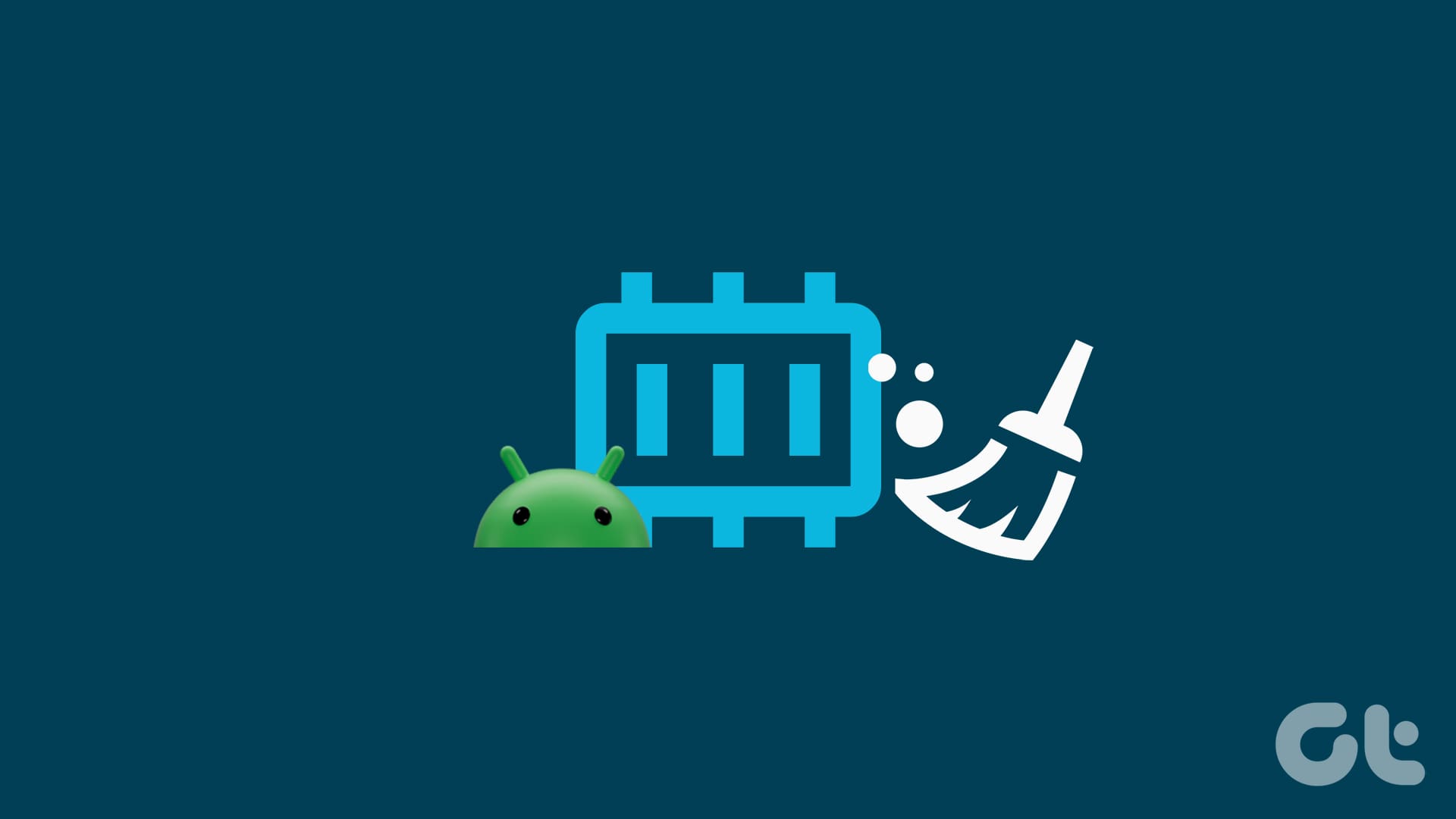
This can be anything from an unwanted app to a recently added widget.
But what happens when you free up RAM on Android?
Using the Force Stop Option
Certain apps can occupy more memory than others.
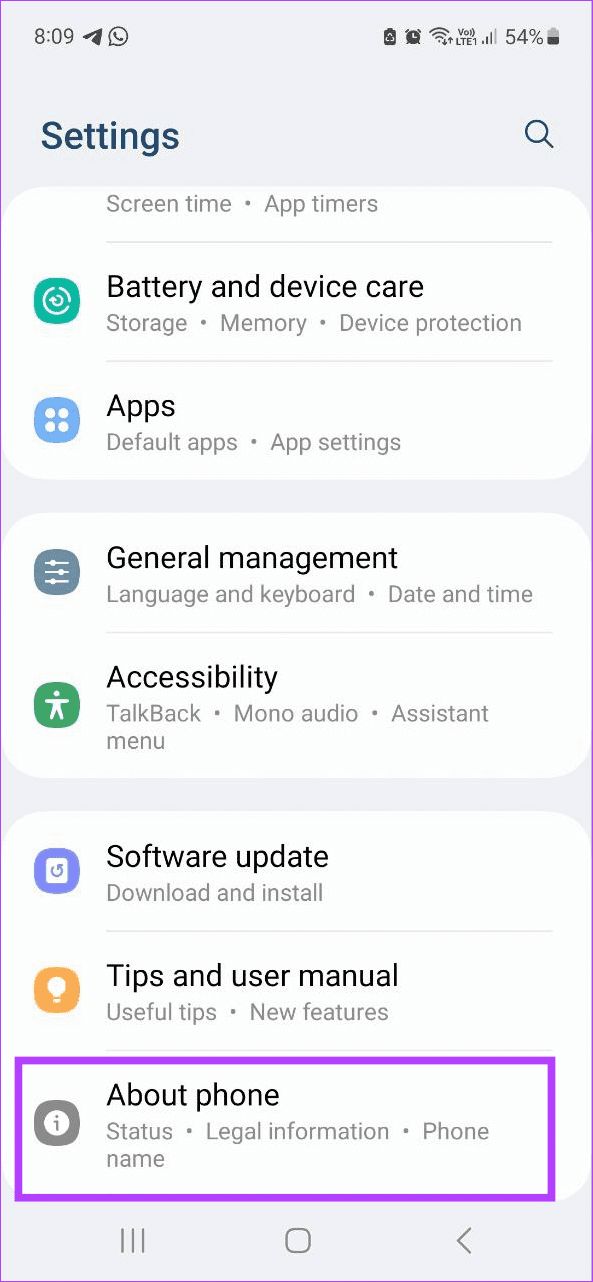
you’ve got the option to see these apps from your devices developer options.
To do this, heres how toenable developer optionsandcheck the memory usageon your Android unit.
Step 1:Open prefs and tap on About phone.
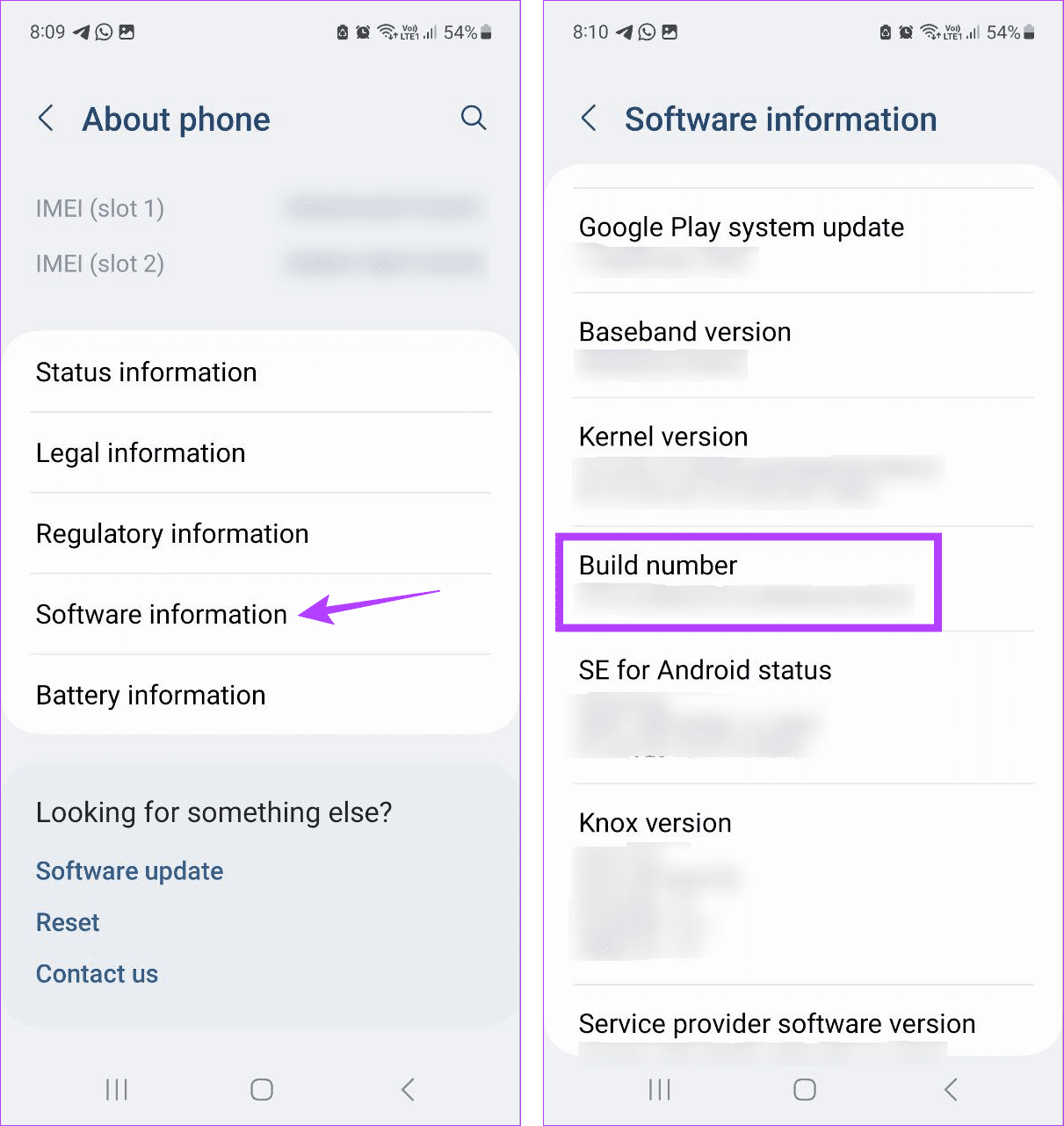
Step 2:Tap on Software information.
Then, quickly tap on Build number five or seven times in a row.
key in your equipment PIN or password to enable developer options.
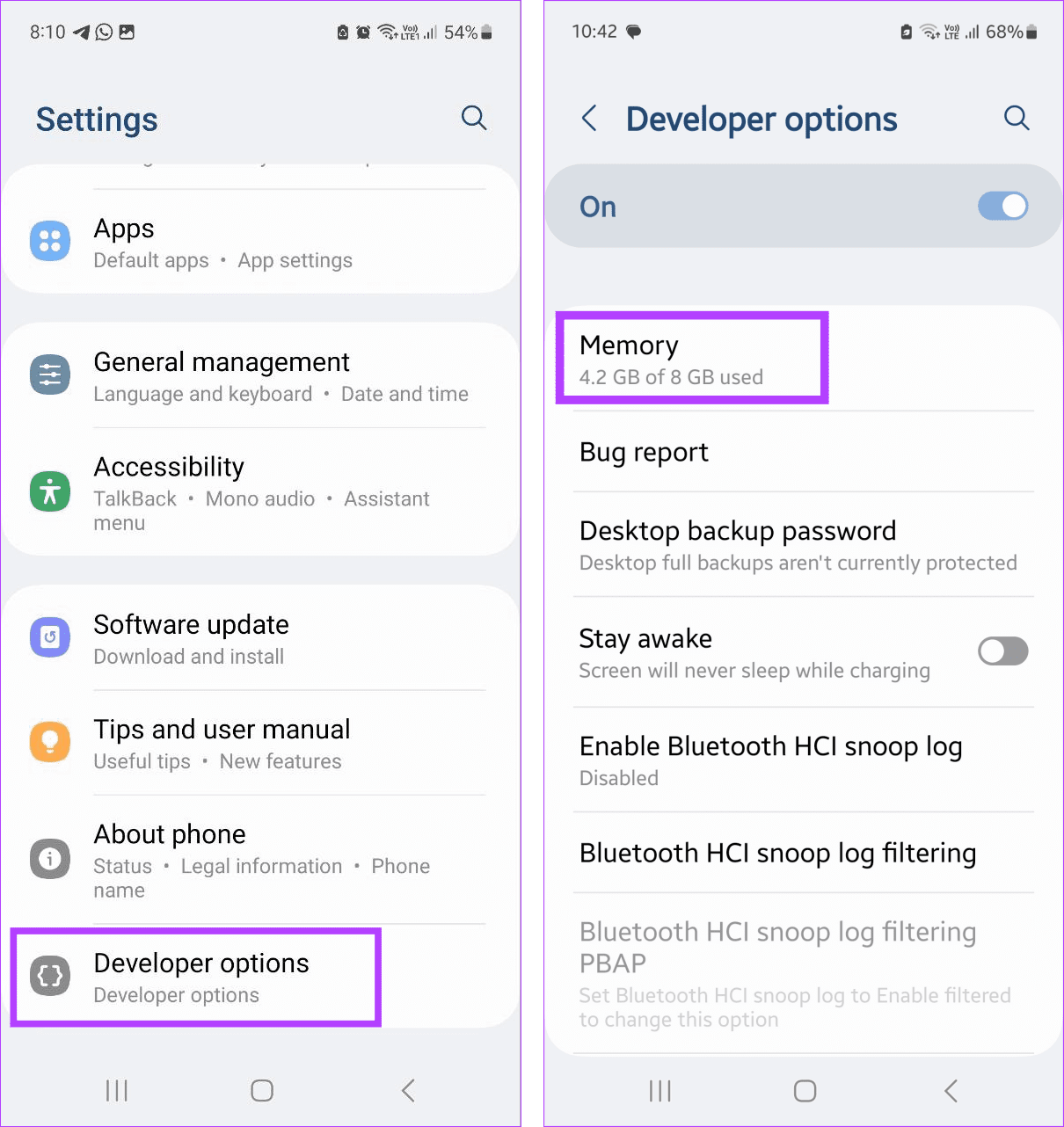
Tip:Check our guide ifdeveloper options are not showing up on Android.
Step 3:Now, go back to the prefs page and tap on Developer options.
Step 4:Then, tap on Memory.
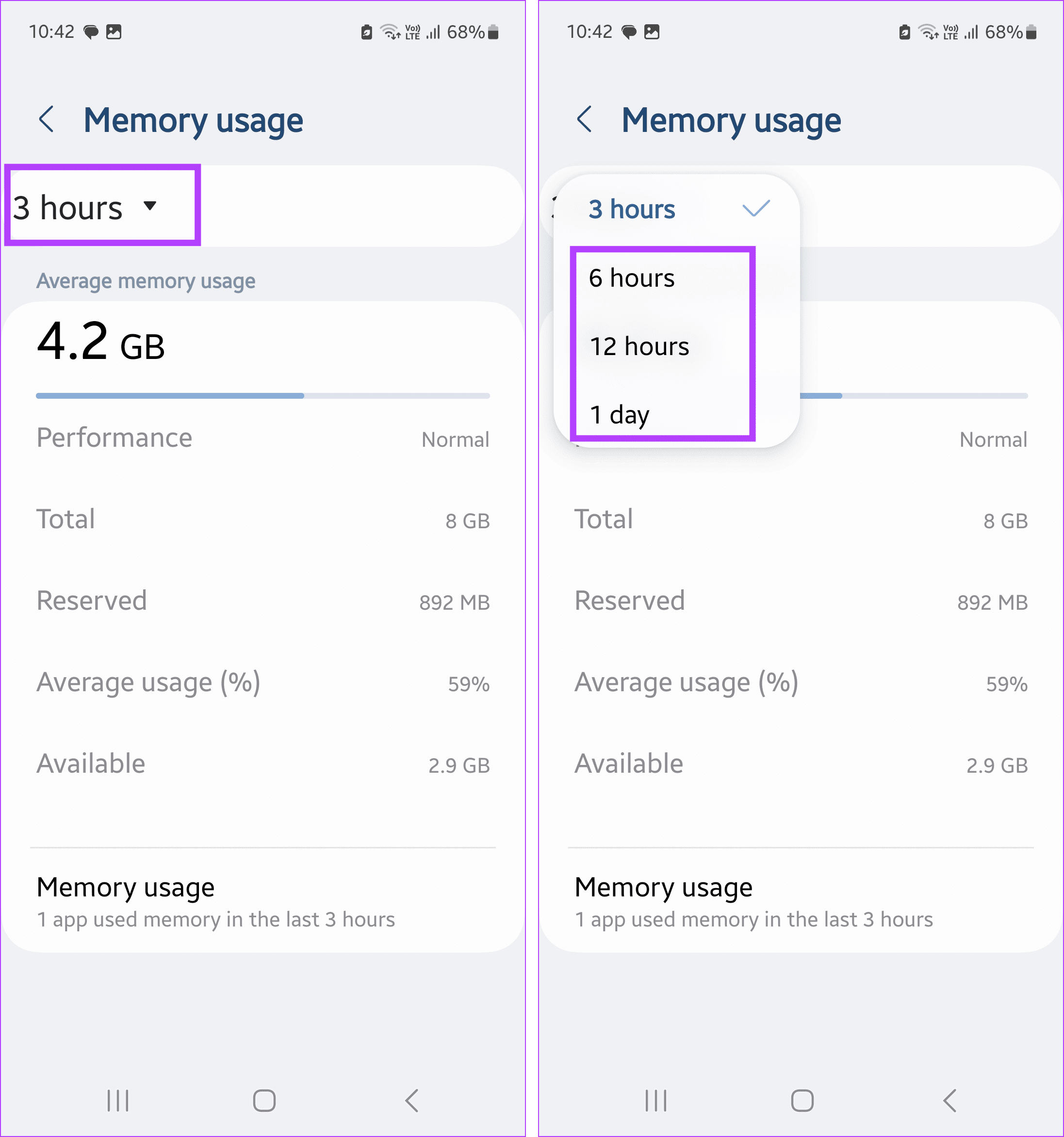
Step 5:Here, use the drop-down to snag the relevant memory usage duration.
Step 6:Once done, tap on Memory usage.
Here, take note of the apps with the most memory usage.
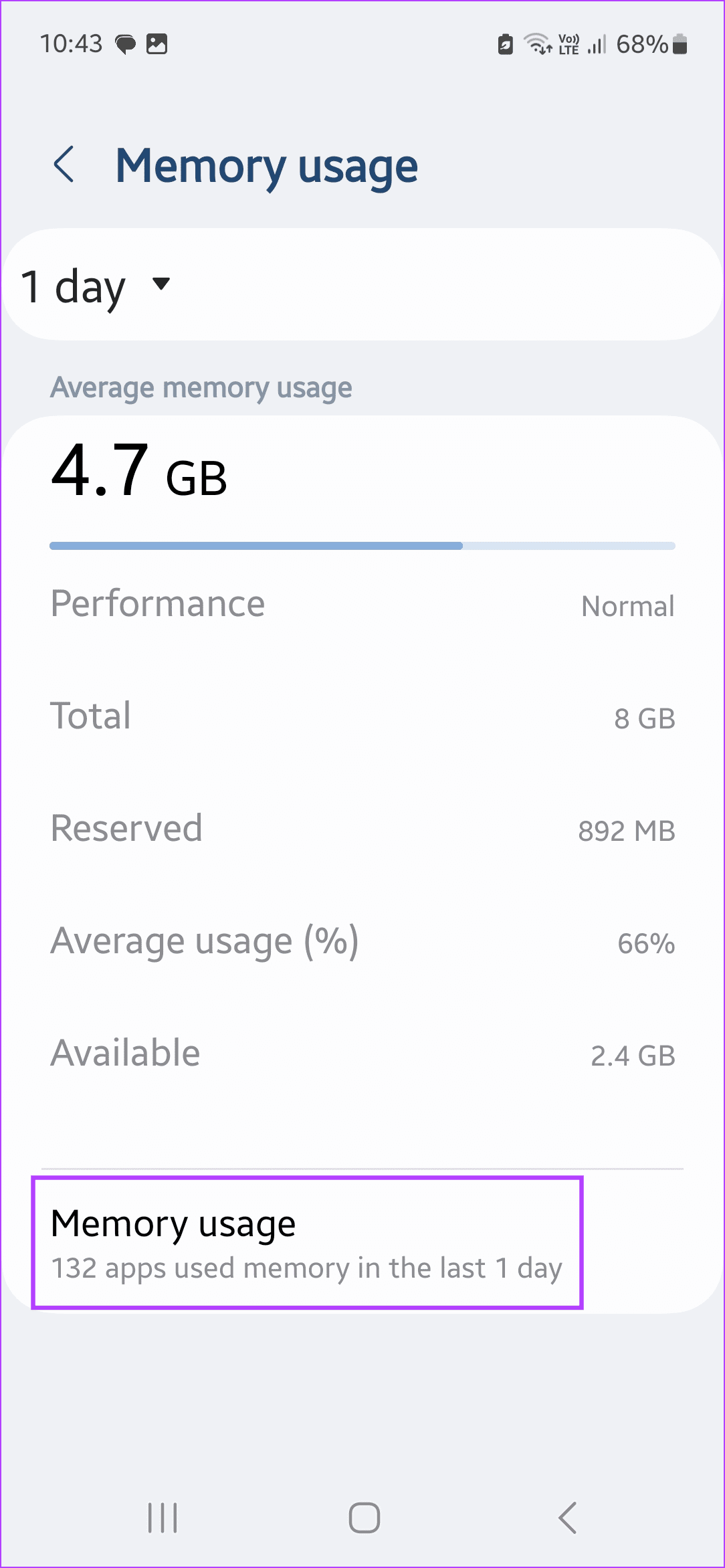
Then, use the below steps to force stop them on your Android unit.
Step 1:bring up the prefs menu and tap on Apps.
Step 2:Here, tap on the relevant app.
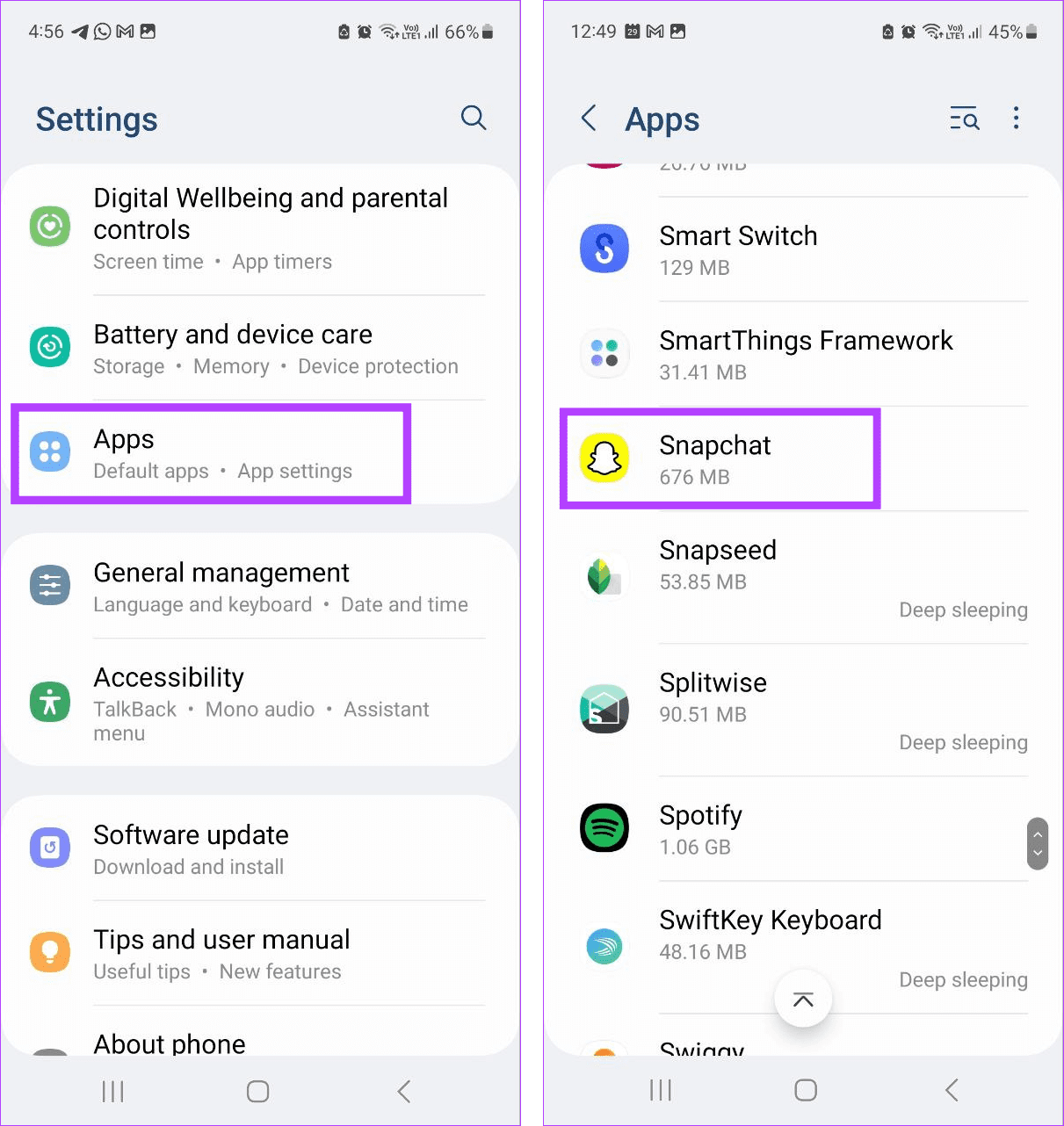
Step 3:Then, tap on Force stop.
Step 4:When prompted, tap on OK.
This will immediately force-stop the app on your Android gadget.
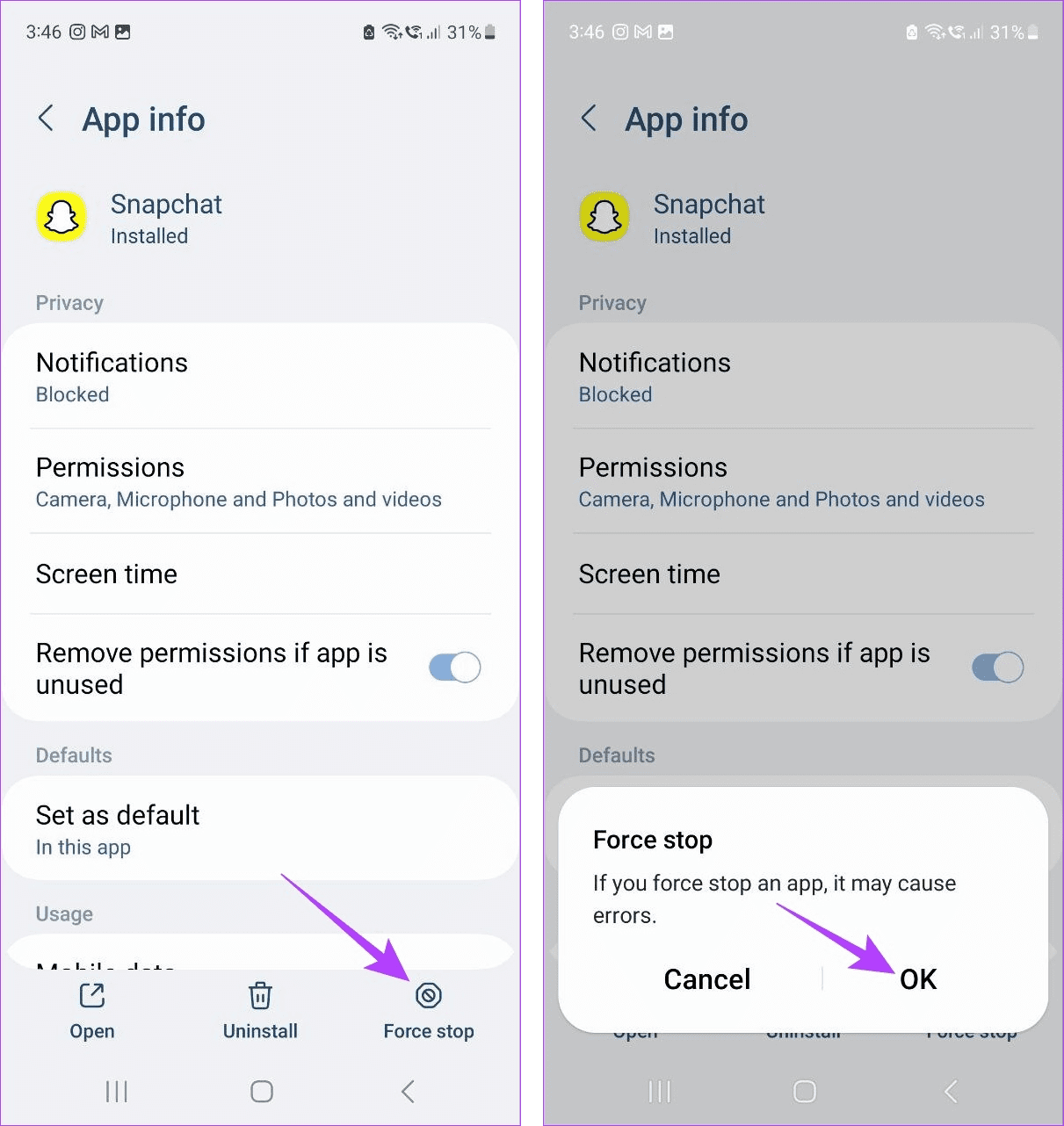
Removing Unwanted Apps
Certain apps can start and operate in the background.
This will not only drain your devices battery but also take up additional memory.
If this app is not in use or not required anymore, uninstall it from your Android unit.
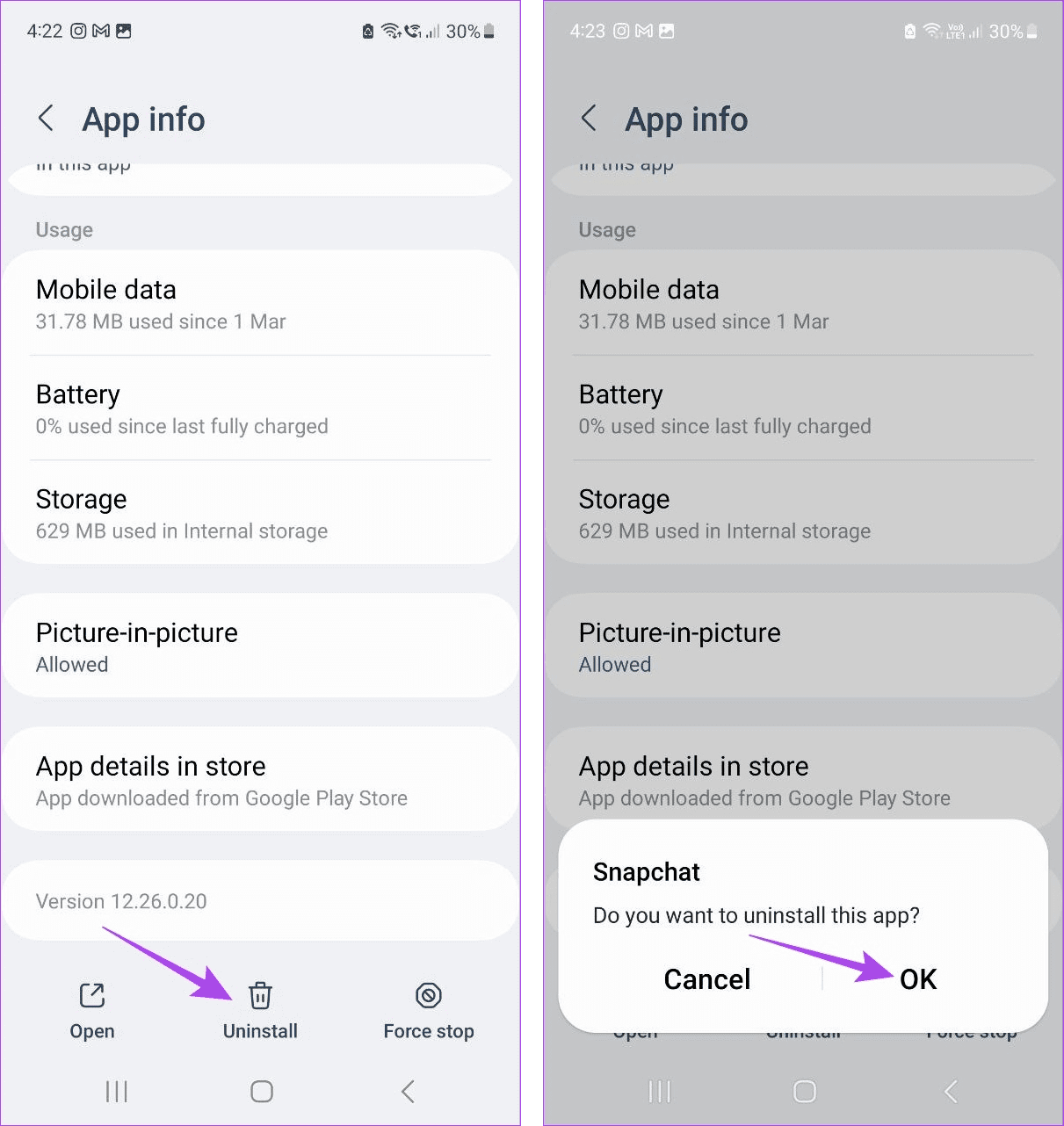
This will free up the space and memory on Android.
Heres how to do it.
Tip:you’re free to alsouninstall the updates for certain system appson your Android gear.
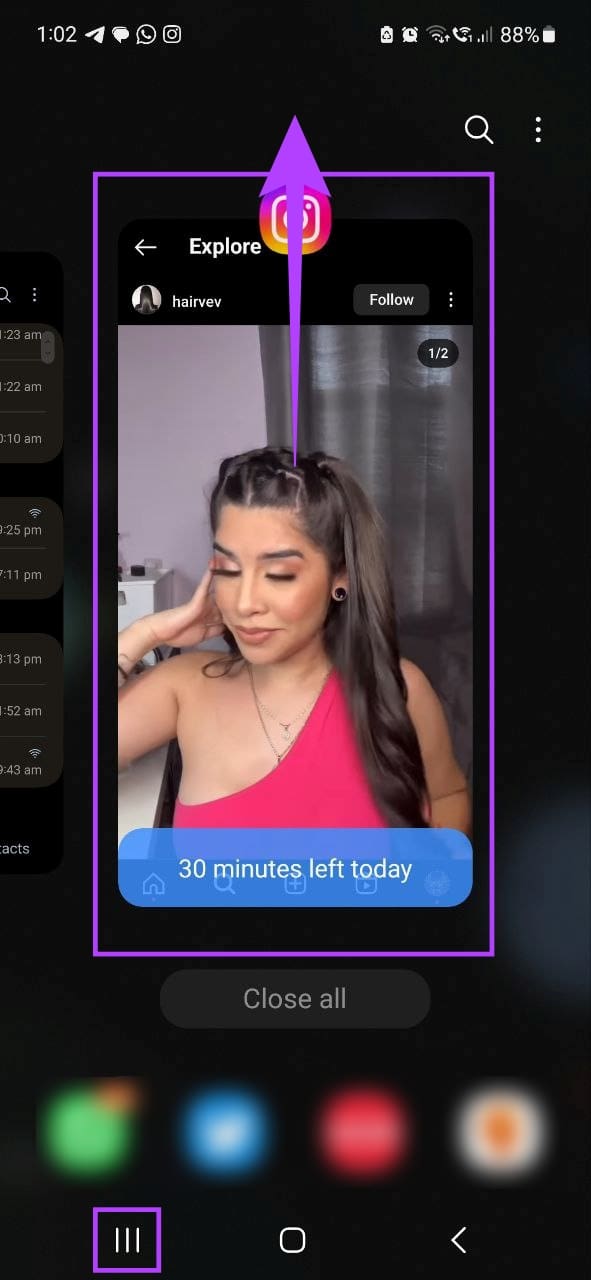
Step 1:Open options and tap on Apps.
Step 2:Scroll through the currently installed apps and tap on the relevant one.
Step 3:Here, tap on Uninstall.
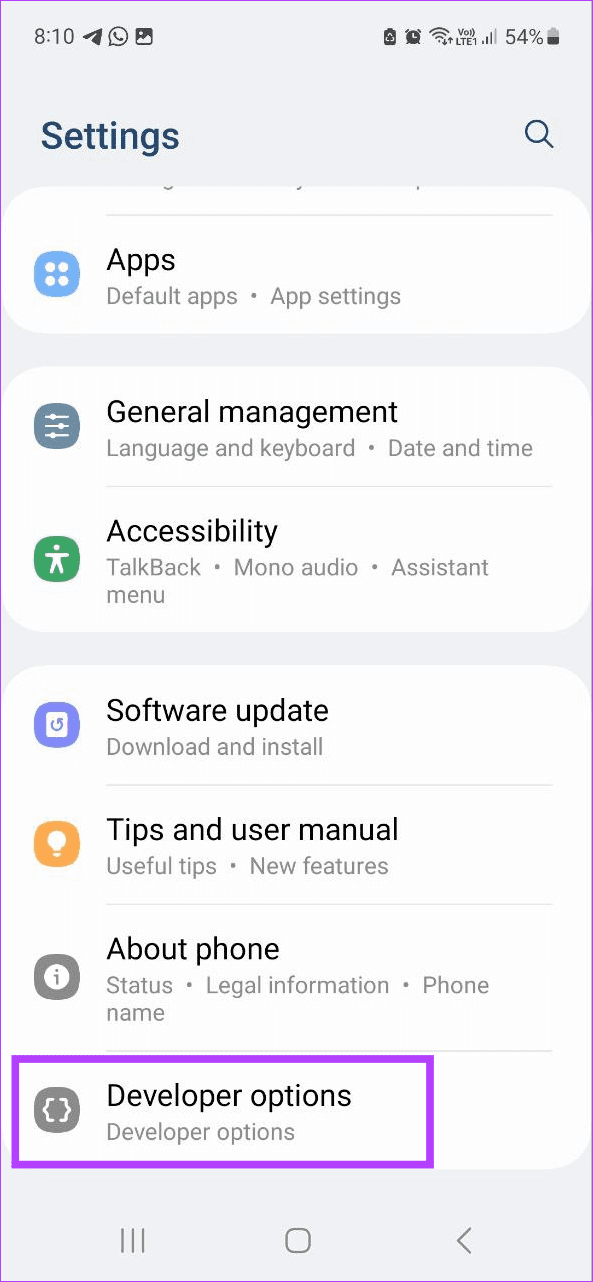
Wait for the app to finish uninstalling.
Then, go back to the Apps page anduninstall any other unused app from your Android rig.
Closing Background Apps
you could easily jump into the apps currently open in the background using the Recent option.
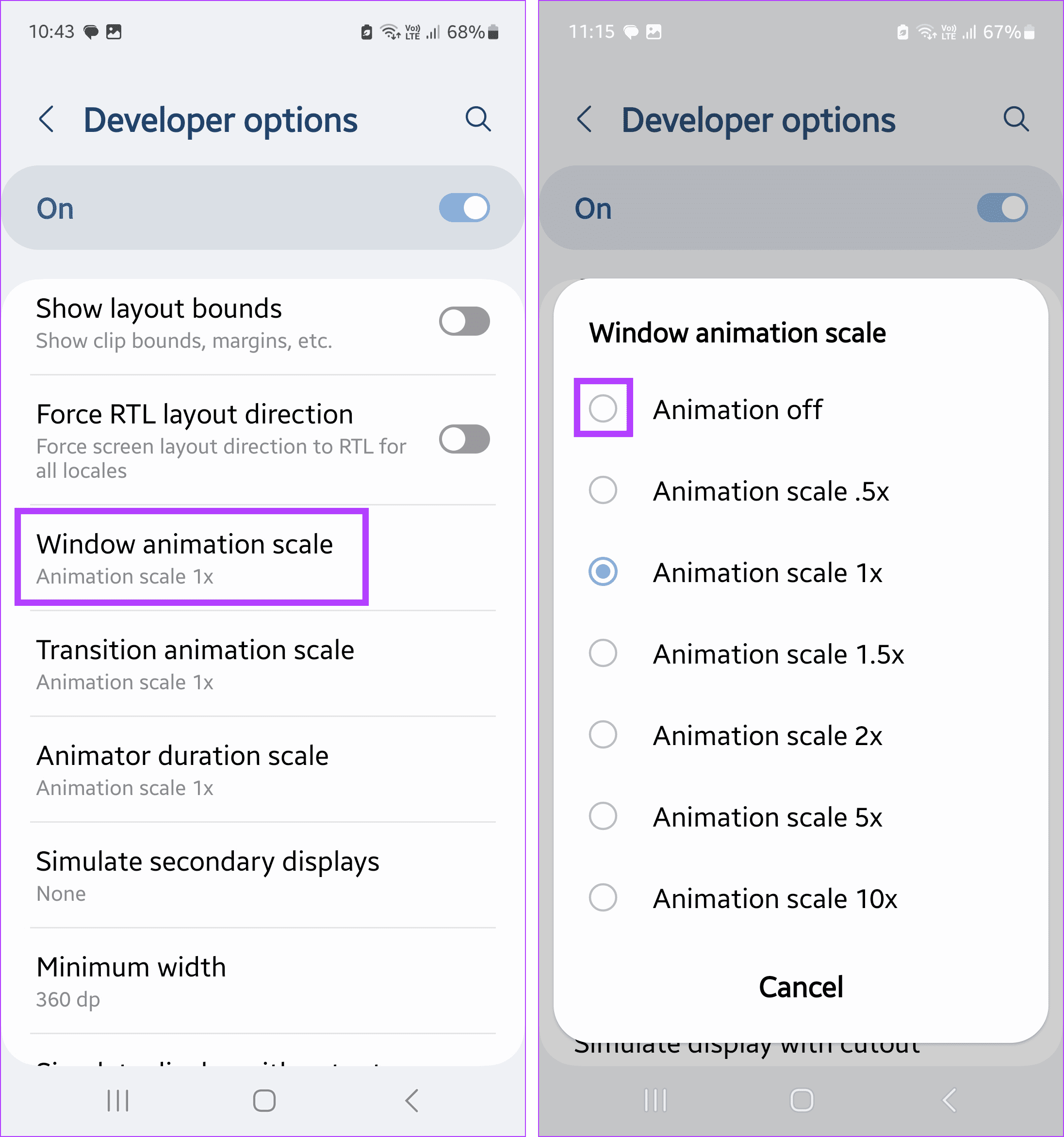
It is a great way to multitask as you switch between multiple apps at a swipe.
However, these apps can occupy your devices memory and, over time, slow down processes.
To stop that from happening, close these background apps on your Android gadget.

Step 1:Tap on the Recent icon to open background apps.
Step 2:Now, hold and swipe up until the app is cleared from the screen.
Repeat these steps to close all the currently open background apps on your Android phone.
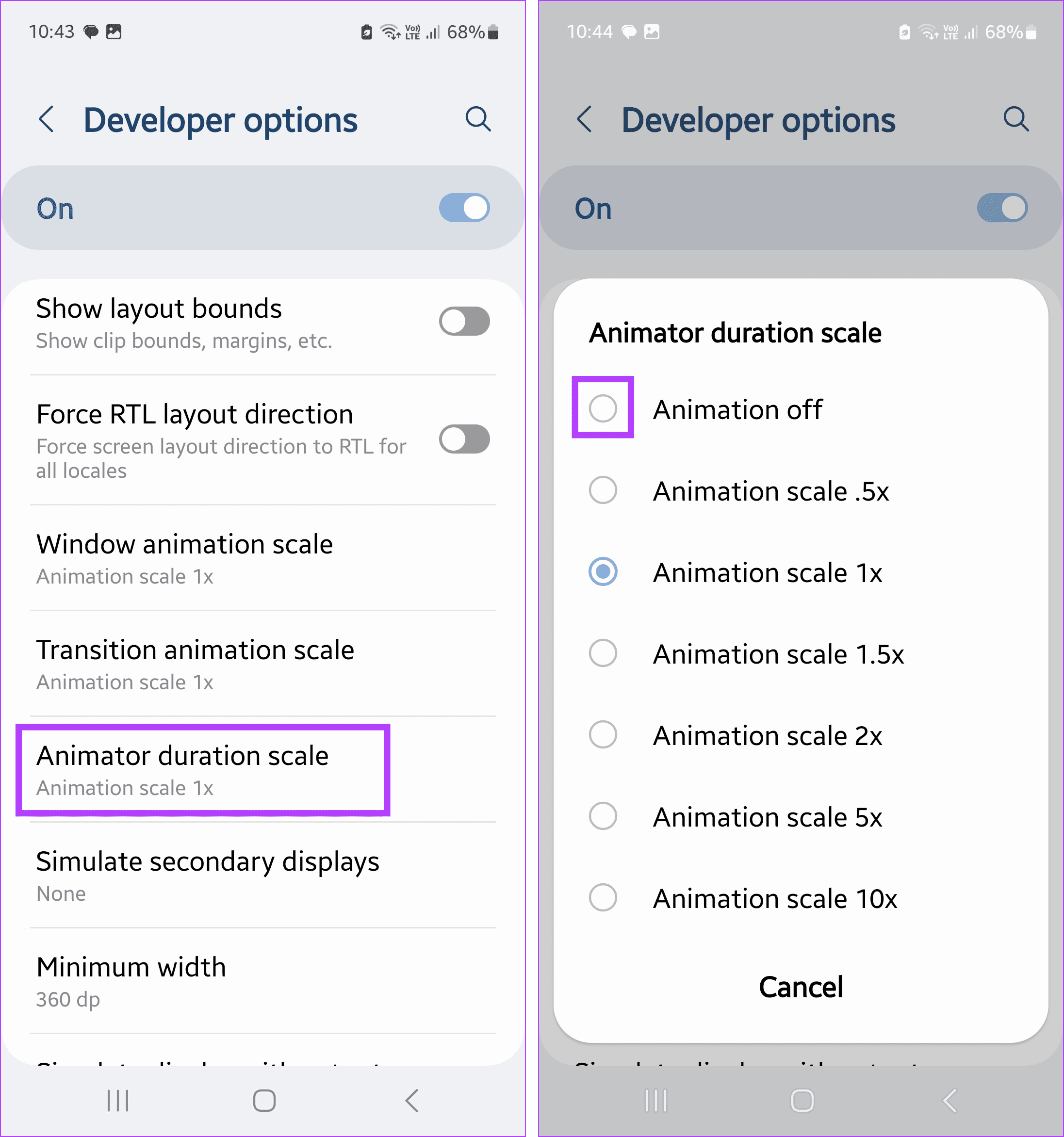
Now, tap on the relevant app icon to reopen the required apps.
Disabling Phone Animations
Animations help liven up your browsing experience.
However, they often use too much memory, especially if you use RAM-heavy apps on the side.
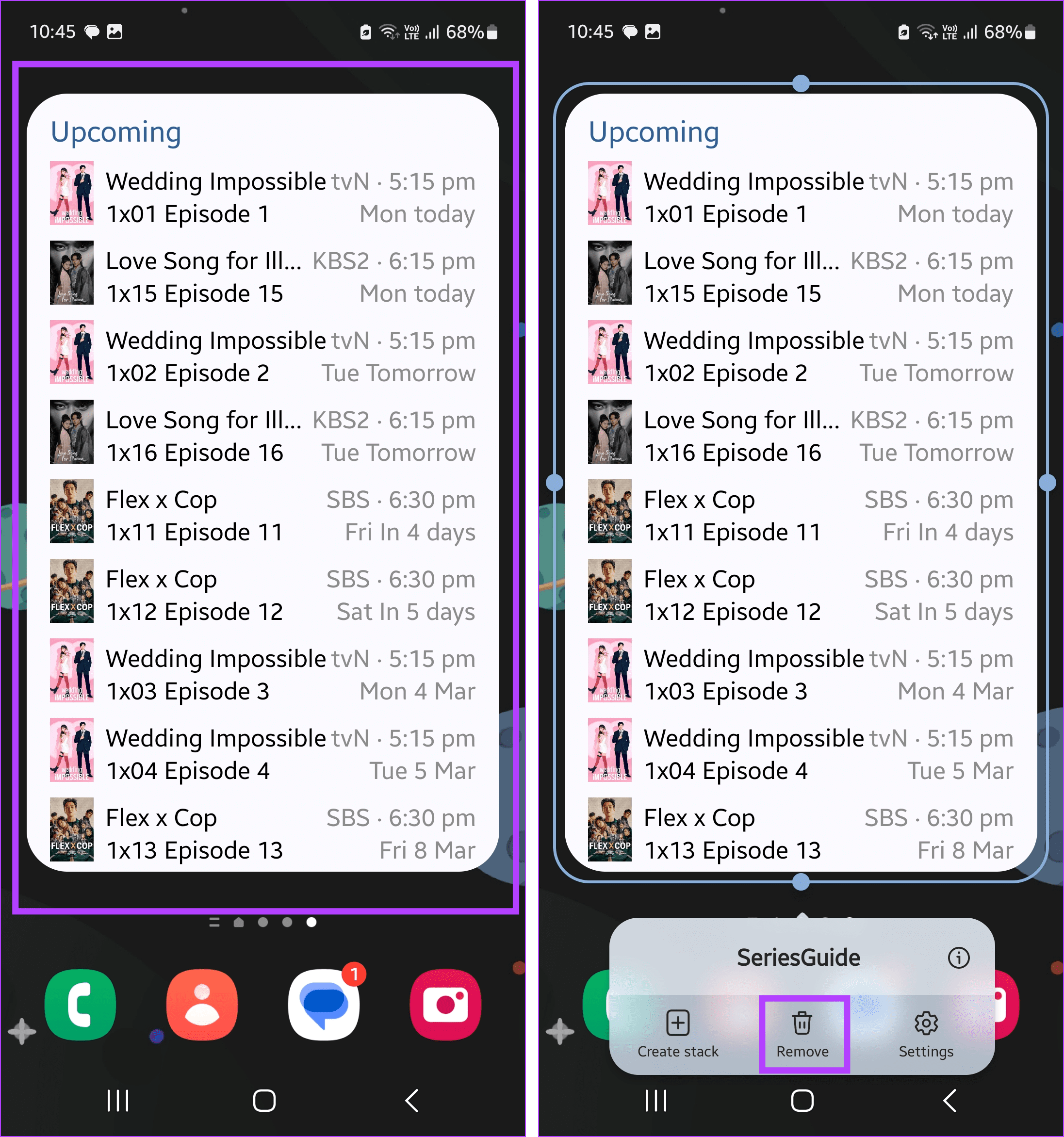
In this case, kill the animations on your Android phone and revert to the classic look.
To do this,enable developer options on your Android deviceand follow the below steps.
Step 1:Open parameters and tap on Developer options.
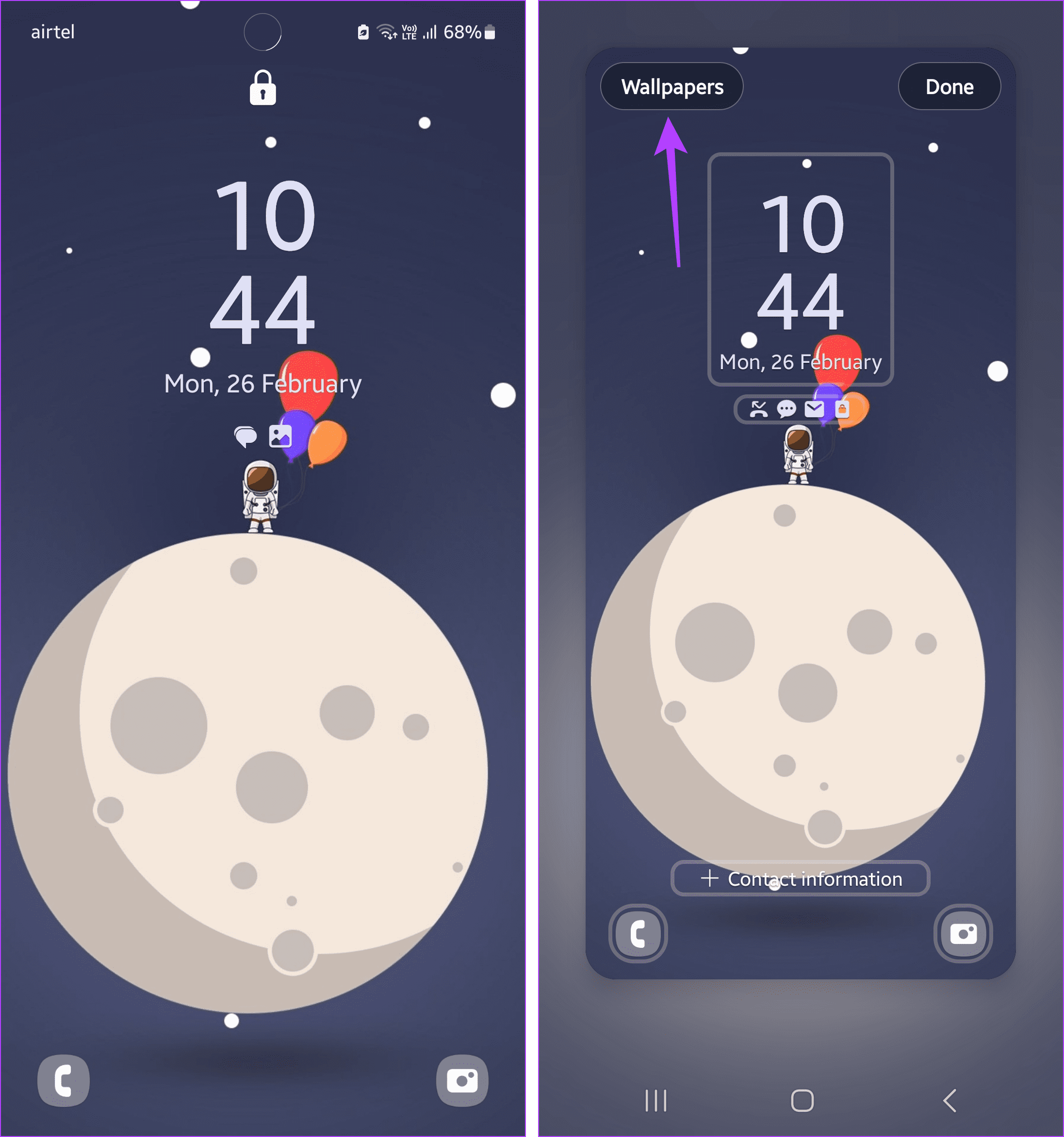
Step 2:Scroll down and tap on Window animation scale.
Step 3:Then, select Animation off.
Step 4:Next, tap on Transition animation scale.
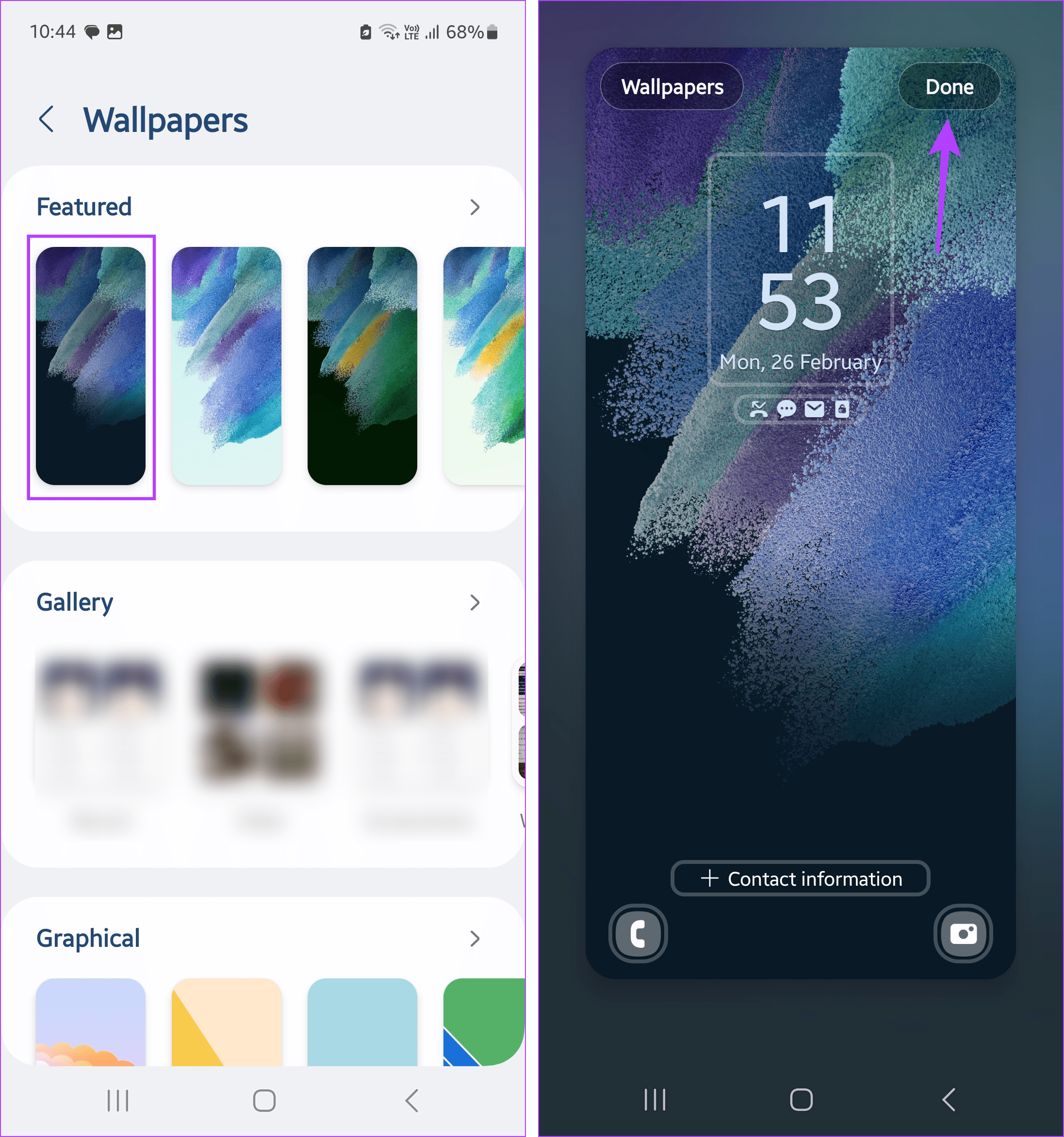
Step 5:When prompted, select Animation off.
Step 6:Lastly, tap on Animator duration scale.
Step 7:Again, select Animation off.

Deleting Widgets
Most Android widgets update in the background to show you the most recent information.
This causes the related apps to remain active as well.
So, if youve been experiencing a system slowdown after adding a widget recently, remove it.

This should reduce the RAM usage on Android and speed up other processes.
Heres how to do it.
Step 1:On your Android devices home screen, locate the relevant widget.
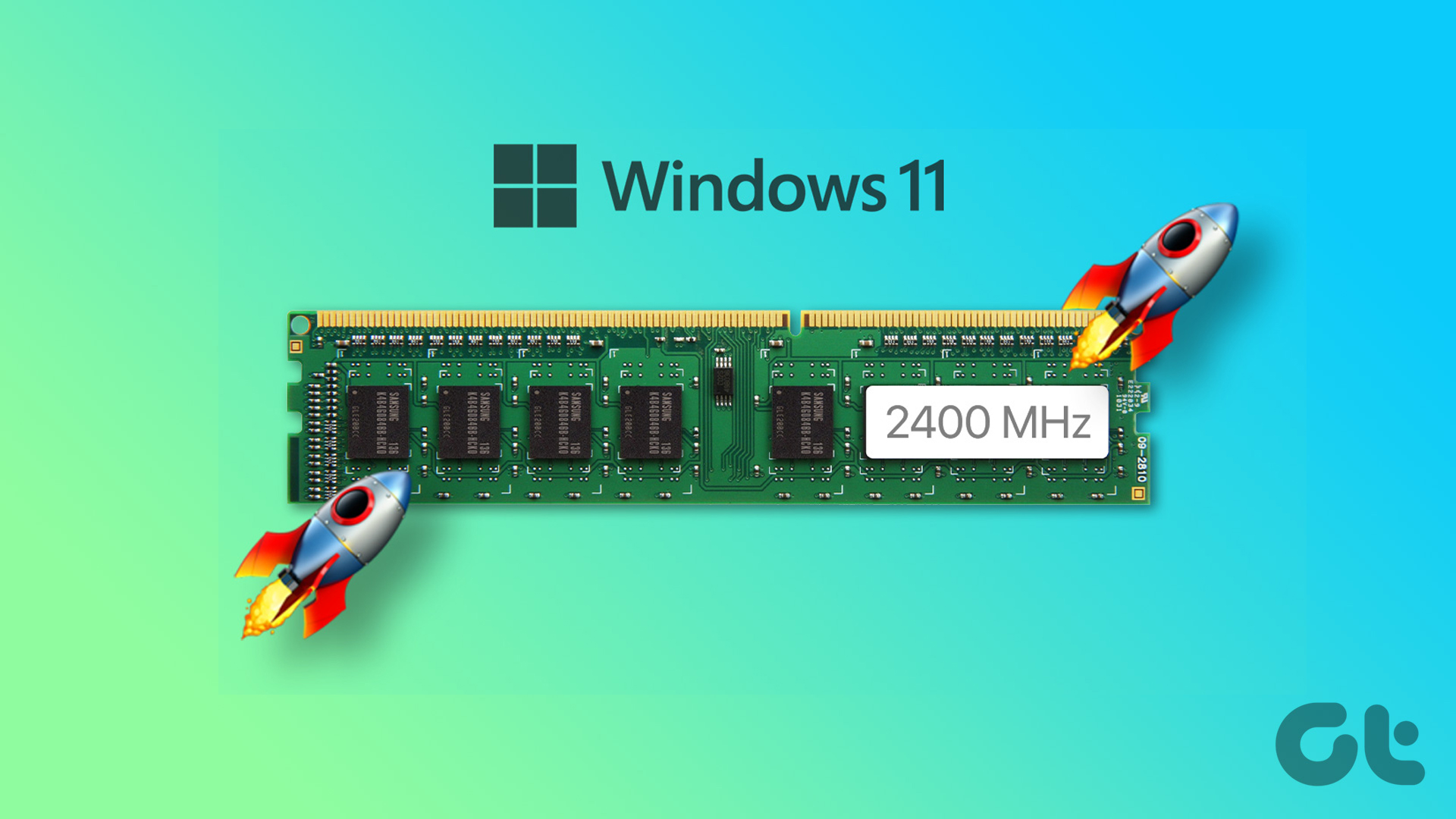
Step 2:Long-press on it to see more options.
Step 3:Here, tap on Remove.
Using a Static Wallpaper
Most Android devices these days come pre-loaded with animated wallpapers that automatically change.

This is a great way to change your wallpaper without doing anything.
Step 1:Open your Android devices lock screen and long-press on it.
When prompted, drop your devices password or PIN.
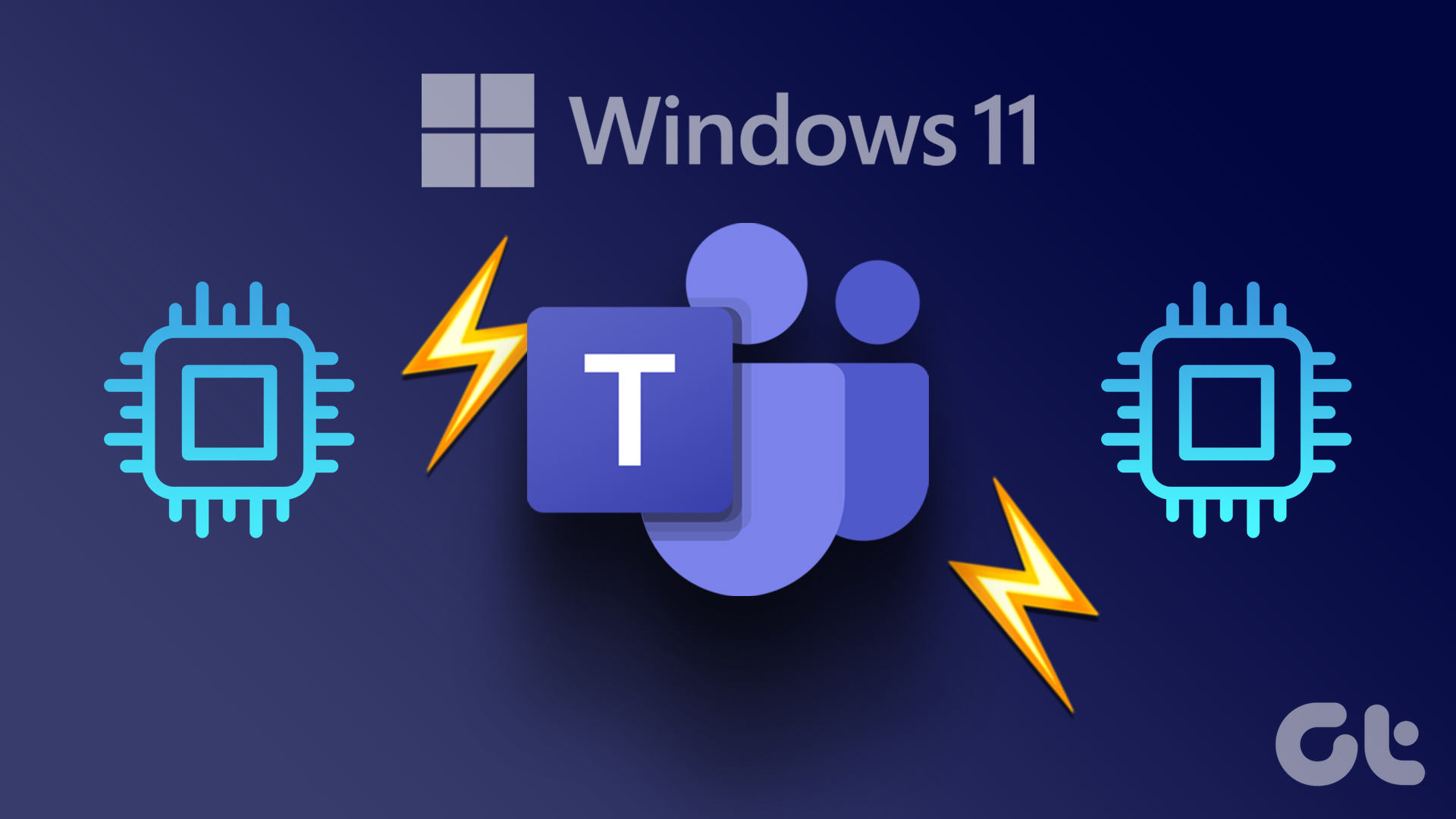
Step 2:Then, tap on Wallpapers at the top left.
Step 3:From the list of wallpapers, opt for relevant one.
Step 4:Here, see how the new wallpaper looks.

Once satisfied, tap on Done.
This will change the wallpaper and set the new static wallpaper on your Android phone.
you could then use these stats to dump the RAM accordingly.

If you need a RAM boost, check and see if you’re free to usevirtual RAM.
We advise against using third-party apps as they can access your devices data and any other sensitive information.
Free up RAM on Android
Slow or unresponsive phones can be a nightmare to navigate.

So, we hope this article helped you understand more about clearing RAM on your Android phone.
you could also check our article ondisabling the sensors on your Android phoneto reduce gadget memory consumption further.
Was this helpful?
The content remains unbiased and authentic and will never affect our editorial integrity.